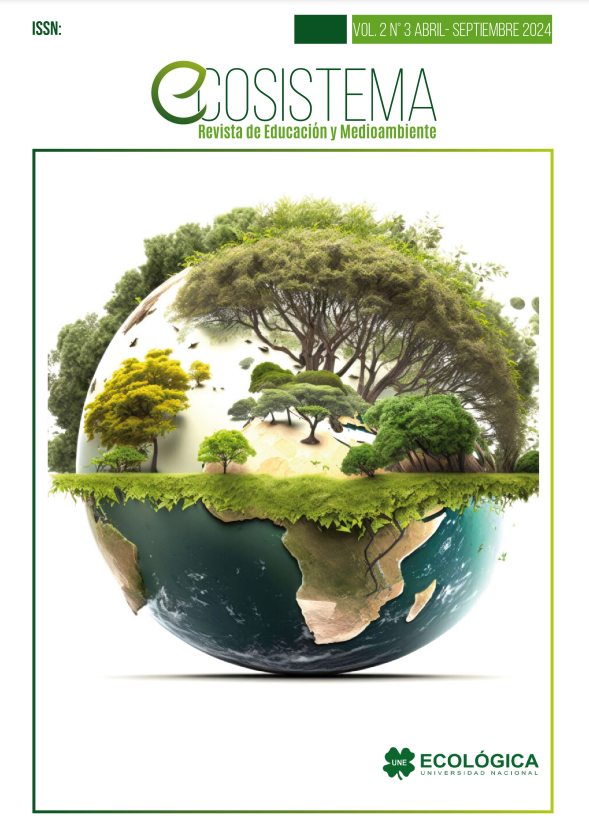La formación terapéutica. Una mirada a la diversidad desde el contexto universitario Therapeutic training. A look at diversity from the university context
Contenido principal del artículo
The virtual learning environment and stress coping are currently considered as topics that should be investigated due to the different moments that have been experienced during this COVID-19 pandemic, even more so if it is associated with university academic subjects. The objective was to establish the relationship between the virtual learning environment and stress coping in students of the Faculty of Chemical Engineering of the National University of Callao, in the context of the COVID-19 pandemic. The research is of quantitative approach, descriptive correlational method and with a non-experimental design, the population was constituted by the students enrolled from I to II cycle of the Faculty of Chemical Engineering of the National University of Callao, the instruments used were: the Stress Coping Questionnaire and the Virtual Learning Environment Questionnaire. According to the results, there is a direct relationship between the virtual learning environment and stress coping in students of the Faculty of Chemical Engineering of the National University of Callao, in the context of the COVID-19 pandemic. It is concluded that there is a direct relationship between the virtual learning environment and stress coping, being positive and very high in university students.
Therapeutic Physical Culture is one of the most important methods of contemporary integral therapeutics, as a functional therapy, its theoretical basis is constituted by the medical-biological and pedagogical sciences. Its conception is characterized by the influence of different tendencies, which determine its structuring, norms and procedures, such context requires studying how it is carried out from the preventive and compensatory corrective approach, to face the solution of the professional problems present in the spheres of action, related to special educational needs associated or not to disabilities. The objective of the research was to propose a didactic conception of therapeutic training for students studying for a Bachelor’s degree in Education. Special Education. Methodologically, it is descriptive, mixed approach and experimental design. The result constitutes a research contribution in the context of university Physical Education, where the methodological performance of the teacher, the physical and therapeutic performance of the student and the autonomy for therapeutic training are highlighted.
Detalles del artículo

Esta obra está bajo una licencia internacional Creative Commons Atribución-NoComercial-CompartirIgual 4.0.
Referencias
Bell, R. (2004). El modelo cubano de la escuela especial. http://www.cubaeduca.cu/index.php?option=com_content&view=article&id=201&Itemid=139.
Borges, S. (2007). Revista: La educación especial, pasado, presente y futuro. La Habana: CELAEE. Archivo digital.
Blázquez, D. (2017). Competencias del profesor de Educación Física. Gestión didáctica de la clase. Convención internacional AFIDE 2017. ISBN 978-959-203-237-8. En: https://scielo.sld.cu/scielo.php?script=sci_arttext&pid=S1561-31942017000600019
Fernández, J. (2016). El Moodle en Educación Física. Algunas ejemplificaciones prácticas. Revista Digital EFDeportes.com Buenos Aires, Año 20, Nº 214. http://www.efdeportes.com/
Ferrada, D. (2017). Formación docente para la diversidad. Revista Mexicana de Investigación Educativa. RMIE, 22(74), 783-811: http://www.redalyc.org/articulo.oa?id=14053215006.
Fuentes, H. (2010). La formación de los profesionales en la Educación Superior. Una alternativa holística, compleja y dialéctica en la construcción del conocimiento científico. CeeS “Manuel F. Gran”. Santiago de Cuba, Ediciones Universidad de Oriente. Recuperado en: https://doi.org/10.1037/0000165-000
Horruitiner, P. (2008). La universidad cubana: el modelo de formación. Editorial Félix Varela. La Habana, Cuba. Recuperado en: http://cdeporte.rediris.es/revista/revista42/artevaluacion163.htm
Izaguirre, R. (2021). Los métodos teóricos en la investigación educacional. Bayamo: Editorial Ediciones UDG.
López, V. (2011). El papel de la evaluación formativa en la evaluación por competencias: aportaciones de la Red de evaluación Formativa y Compartida en Docencia Universitaria, Revista de Docencia Universitaria, 9, (1), 159-173, http://redaberta.usc.es/redu/index.php/redu/article/view/198/172
Mesa, M. (2006). Asesoría estadística en la investigación aplicada al deporte. La Habana: Editorial José Martí. 4(4), 230-239. Recuperado el 25 de Junio de 2012, de URL: http://dx.doi.org/10.5539/ies.v4n4p230
Vigotsky, L.S., (1978). Mind in Society: The Development of Higher Psychological Processes. Cambridge, MA: Harvard University Press. En: https://scielo.sld.cu/pdf/san/v22n5/san13225.pdf


